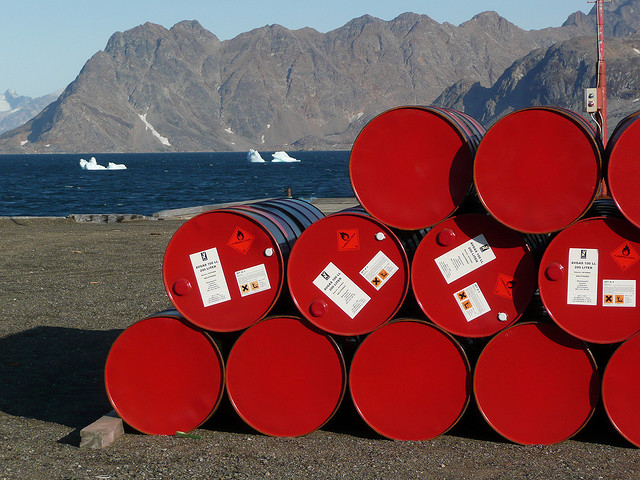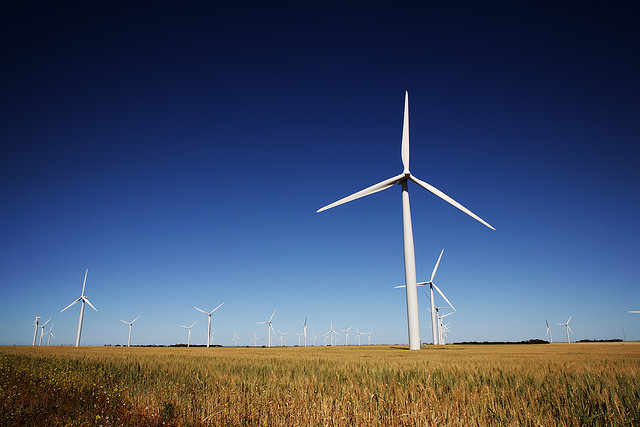
Americans are thrilled to be saving money at the gas pump. But low oil prices aren’t good news for everyone – namely, oil and gas companies.
And that affects many Americans who are invested in oil and gas companies through their retirement accounts. But how much do low oil prices really hurt retirement funds?
Dan Boyce from Inside Energy explores the question:
Oil was at $55 to $60 a barrel just before Christmas, down from a high of more than $100 per barrel this summer.
Wanting to see just how much stake the average person has in oil and gas, we found that the most direct way to get access to sensitive personal financial information was if we analyzed one of our own retirement accounts. I humbly volunteered my own T. Rowe Price Roth IRA.
It’s a meager account, containing a little more than $4,200 at this point, and analyzing it for my oil and gas holdings revealed how complex the modern retirement portfolio really is.
My $4,200 splits among 19 smaller funds, which are invested in thousands of sources. The list ranges from companies like Tootsie Roll Industries and WD-40 to countries like Norway and even World Wrestling Entertainment.
It turns out a little less than 6 percent of my IRA is directly invested in oil and gas companies, or about $243.
Scott Middleton, who works with investment consulting company Innovest, said this mirrors the national average for retirement investments in energy at somewhere between 5 to 10 percent.
It’s true for IRA accounts like mine, as well as for others like 401(k)s, 403(b)s and pension funds.
The Colorado Public Employees Retirement Association, for example, has about 7 percent of its total portfolio in the energy sector, which in Wall Street-speak basically means just oil and gas. It makes up about 9 percent of the total stock market.
Middleton said as oil prices shrink, so, too, does my $243 in oil and gas investments. And so do most of the other funds invested in the same stocks.
But Boyce offers a few qualifiers that muddy the picture of just how much falling oil prices might hurt retirement savings:
A couple of things to remember, though. For one, I’m betting on my retirement account for the long term. The account is based upon the premise that I won’t start withdrawing from it until 2055.
Short-term fluctuations in price shouldn’t really concern us. Over the long term, the energy sector has been considered a very safe investment, yielding about a 10 percent annual rate of return.
Also, while declining oil prices might be bad for one part of my portfolio, they’re good for other parts. For example, Middleton said chemical producers and transportation companies tend to do well with lower oil prices.
Ultimately, oil and gas is not a critical part of our retirement funds. But, make no mistake, our retirement funds are absolutely critical for the oil and gas industry. The American Petroleum Institute says about 70 percent of U.S. oil company worth is owned by tens of millions of U.S. households through our IRAs, our pensions and our mutual funds.
Read the whole piece here.
Photo by ezioman via Flickr CC License

